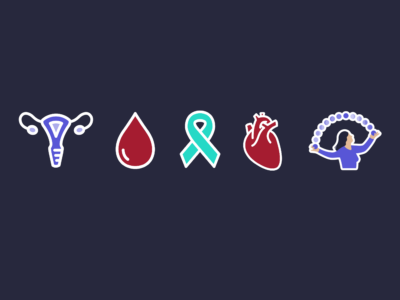Seasonal variations of menstrual cycle length in a large, US-based, digital cohort
International Journal of Hygiene and Environmental Health, December 2023: This study examines and quantifies seasonal patterns in menstrual cycle length of over 17,000 participants in the Apple Women’s Health Study.
Read moreMenstrual cycle length variation by demographic characteristics from the Apple Women’s Health Study
Nature Digital Medicine, May 2023: Menstrual characteristics are important signs of overall health. Here we examine the variation of menstrual cycle length by age, ethnicity, and body weight using cycles from over 12,000 participants in the Apple Women’s Health Study.
Read moreCovid-19 vaccination and menstrual cycle length in the Apple Women’s Health Study
Nature Digital Medicine, November 2022: COVID-19 vaccination may be associated with change in menstrual cycle length following vaccination. We estimated covariate-adjusted differences in mean cycle length (MCL), measured in days, between pre-vaccination cycles, vaccination cycles, and post-vaccination cycles within vaccinated participants who met eligibility criteria in the Apple Women’s Health Study, a longitudinal mobile-application-based cohort of people in the U.S. with manually logged menstrual cycles.
Read moreAbnormal uterine bleeding patterns determined through menstrual tracking among participants in the Apple Women’s Health Study
American Journal of Obstetrics and Gynecology, October 2022: This study aimed to identify abnormal uterine bleeding patterns and their prevalence and confirm existing and expected associations between abnormal uterine bleeding patterns, demographics, and medical conditions.
Read MoreAttempts to Conceive and the COVID-19 Pandemic: Data from the Apple Women's Health Study
American Journal of Obstetrics and Gynecology, May 2022: This publication examines the effects of factors related to the COVID-19 pandemic, through March 2021, on attempting conception status. It also assesses effect measure modification by education level and subjective social status (SSS).
Read moreDesign and methods of the Apple Women's Health Study: a digital longitudinal cohort study
American Journal of Obstetrics and Gynecology, October 2021: The Apple Women’s Health Study was designed to gain a deeper understanding of the relationship among menstrual cycles, health, and behavior. This paper describes the design and methods of the ongoing Apple Women’s Health Study and provides the demographic characteristics of the first 10,000 participants.
Read moreMeet the team
The principal investigators of the Apple Women's Health Study have unparalleled expertise in reproductive epidemiology and women’s health.
Research effort you can join
Your participation in the Apple Women’s Health Study will enable innovative research that would have been impossible before now.
Periods, polycystic ovarian syndrome, and heart health
Preliminary analyses showed that participants with PCOS were more likely to have a family history of PCOS, abnormal menstrual cycles, and conditions that can negatively impact heart health.



